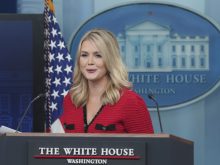WASHINGTON, D.C., (Reuters) — United States transportation secretary Pete Buttigieg is looking at ways to address supply chain disruptions, from clogged ports to addressing the shortage of truck drivers.
U.S. President Joe Biden issued an executive order in February on supply chain issues.
In June, the White House unveiled a Supply Chain Disruptions Task Force led by Buttigieg and the commerce and agriculture secretaries “to provide a whole-of-government response to address near-term supply chain challenges… (and) to diagnose problems and surface solutions — large and small, public or private — that could help alleviate bottlenecks and supply constraints.”
Read Also

Pakistan reopens its doors to Canadian canola
Pakistan reopens its doors to Canadian canola after a three-year hiatus.
On July 15, Buttigieg held a virtual roundtable on congestion at the Los Angeles and Long Beach ports that included the Federal Maritime Commission chair, Los Angeles Mayor Eric Garcetti and other senior U.S. officials to look at ways of reducing congestion at ports.
“For our economy to fully recover, we now need our vital supply chains to operate smoothly and without avoidable congestion,” Buttigieg said.
About 40 percent of all containerized freight flowing through the U.S. arrives or departs through Los Angeles and Long Beach ports.
The California State Transportation Agency plans to hold a September forum to examine options to improve cargo movement.
Buttigieg and labour secretary Marty Walsh recently held a separate meeting with trucking industry and labour groups to discuss driver recruitment and retention.
The department said turnover rates are more than 90 percent for large long-haul carriers. This driver turnover, coupled with the impact of COVID-19, has helped lead to supply chain disruptions.
The American Trucking Associations said projections show the industry will need to hire about 1.1 million new drivers over the next decade, or an average of nearly 110,000 per year.














